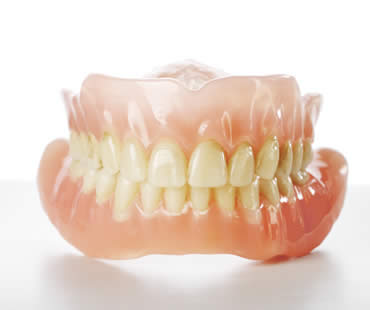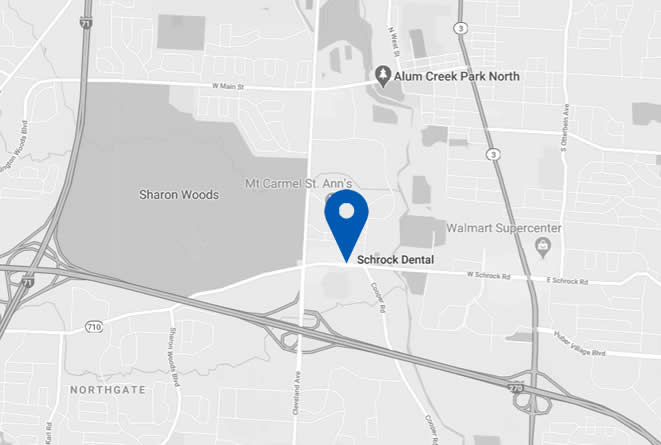
It may be obvious when you’re in a situation that requires immediate treatment by a dentist. Perhaps you’re in immense pain, or you’ve had a tooth knocked out or bleeding that won’t stop. Examples like this make it easy to decide you need help right away, but sometimes it’s not as clear. What are some other problems that may require emergency dental treatment?
Cracked teeth
A cracked or fractured tooth is serious, and often means that the tooth has been damaged both on the inside and the outside. Many times the tooth can’t be saved. If your tooth is broken, schedule an emergency appointment immediately. Remember, a cracked tooth is different than a chipped tooth, which is not as serious. You can usually wait to see your dentist at the next available opportunity for a chipped tooth.
Lost fillings
Some lost fillings require immediate care to avoid worse issues. Fillings protect your tooth’s root from exposure, so if the filling falls out your root can be uncovered and cause intense pain. There is also increased risk for damage to your tooth’s structure, so seeing your dentist as soon as possible is suggested.
Lost crown
If your crown falls out, call your dentist for an appointment as soon as possible. Until you can see the dentist, try putting the crown back in place using an over-the-counter dental adhesive. Do not use any products like Super Glue. If the crown won’t stay in place, make sure you take it to your appointment with you so that it can be re-cemented correctly.
Abscess
If you have a painful swelling on your gum that resembles a pimple, it might be a serious condition called an abscess. It can damage gum tissue and teeth, as well as spread serious infection to your body. See your dentist immediately for proper treatment.
We look forward to seeing you in our Westerville dental office

Although your oral health is of utmost importance, it’s not the only thing to consider about your smile. There is a specialized field of dentistry that focuses on giving you the most appealing smile possible for you. Cosmetic dentistry can turn a crooked, discolored, or otherwise unattractive smile into one that you will want to show off.
A relatively new area of dentistry, cosmetic dentists are becoming more and more popular. The goal is to transform your smile into a beautiful one that will last for a lifetime. It is usually not difficult to find a cosmetic dentist by asking friends and family, researching on the internet, or asking your general dentist for suggestions for this type of specialist.
Most cosmetic dentists use the most modern technologies in their offices to provide the most advanced treatment options. Some of the most popular procedures that you can expect a cosmetic dentist to perform include:
- Teeth whitening – brightening the color of your teeth and minimizing stains
- Veneers – attaching porcelain shells to the fronts of your teeth to hide imperfections
- Implants and crowns – restoring missing teeth to improve mouth appearance and function
- Bonding – using composite resin material to repair chips and fill gaps
- Contouring – reshaping the tooth to create a more appealing look
- Braces – straightening your teeth and correcting jaw misalignment
In additional to improving smiles, you can usually expect a comfortable experience at your cosmetic dentist. A number of the common procedures are not painful, but those that do cause discomfort may be aided with sedation techniques. Sedation dentistry is also an option to relax patients who experience anxiety or fear about visiting the dentist. If you are unhappy with your smile, schedule an appointment with a cosmetic dentist to learn about ways to change your look.
Schedule a consultation today to learn more our Cosmetic Dentistry options at our Westerville dental office.

You may have heard of cosmetic dentistry, but are unsure of how that branch of dentistry can help you. There are many reasons to visit a cosmetic dentist! Just about anyone who is embarrassed or unhappy about their smile can find options for improvement through a cosmetic dentist. A wide variety of procedures and treatments are available for a long list of things that you may dislike about your smile.
Restored smile
Cosmetic dentists can restore the appearance and function of your smile. Gaps, crooked teeth, chips, cracks, discoloration and more can be repaired to give you a flawless new look and renewed self-confidence.
Youthful appearance
The older you get, the greater your chances are of problems like lost or yellowed teeth. Gaps in your smile make you look older, and can even change your face shape as it sinks in around the area of tooth loss. Cosmetic procedures can restore your youth through dental procedures.
Whiter teeth
Dull, yellow, stained teeth from years of consuming dark foods or from tobacco use can make your smile unsightly. There’s no need to hide your smile, because professional teeth whitening is available through cosmetic dentists. It can dramatically improve your appearance in only an hour’s time.
Fresh breath
Various dental issues can contribute to stinky mouth odor. Cosmetic dentistry helps take care of oral health problems to give you a better chance at fresh breath.
Healthier gums
Irritated, swollen, or bleeding gums are both painful and unsightly. Poor dental hygiene or even brushing with excessive pressure can promote gum problems. Cosmetic dentists can diagnose gum issues and help restore them to a healthier condition.
We look forward to seeing you in our Westerville dental office

Having tooth pain or problems can be one of the most uncomfortable experiences possible. It is hard to ignore because it makes your whole quality of life worse. When infection or decay reaches the inner parts of your tooth, it can cause many miserable symptoms. Often the key is getting root canal treatment to save your tooth and alleviate your symptoms. Here are some warning signs that indicate you might need this type of treatment.
Severe pain:
Although not always present, severe pain sometimes occurs with a tooth that needs root canal therapy. It may be sharp, intense pain or a dull ache that won’t subside. If you experience tooth pain that is severe or lasts for several days, see your dentist for an evaluation. If root canal treatment is necessary, any pain you may have will likely disappear after a successful procedure.
Sensitivity to hot or cold:
Discomfort when consuming hot or cold items is another sign of a problem. Mild sensitivity is usually not a big deal, but actual pain when your tooth hits these temperatures may mean the tooth is in an advanced stage of trouble.
Gum tenderness or inflammation:
Swelling or tenderness is often associated with infection, although it doesn’t always mean infection is present. Your dentist can determine the seriousness of the issues and whether root canal treatment is advised. Watch for tenderness, swelling, or even a lump in the affected area.
Darkened tooth:
Discoloration is a sign that the nerves of a tooth are damaged. The tooth may become gray, black or dark yellow. Tooth discoloration is also related to trauma, damaged fillings or severe decay, so visiting your dentist for a checkup is recommended.
Gum boils:
If lesions similar to a pimple form in the gum tissues, it is called a gum boil. It is usually an accumulation of pus, which can be linked to infection. The boil may be larger or smaller at certain times, depending on the activity of the infection in your mouth. It will feel tender and can cause swelling in the area, and you may notice a bad taste in your mouth.
If you have symptoms such as these, see your dentist to learn if root canal treatment is the solution.
If you need a dentist in Westerville contact us today

Most people turn to mouthwash when they suspect their breath is bad and they want a quick boost. It’s true that mouthwash comes in handy for this purpose, but did you know that it offers other benefits too?
Reduces bacteria
Antiseptic and anti-plaque mouth rinses are intended to kill germs that cause gum disease, plaque, and bad breath. Swishing this type of mouthwash around your mouth after brushing has been shown to lower the bacteria levels, and therefore decrease your risks of the problems that bacteria can cause. It is especially helpful in senior adults or others who have trouble brushing and flossing their teeth.
Promotes healing
Rinsing with antiseptic mouthwash promotes natural healing of mouth and gum irritations, minor wounds, and canker sores. It removes debris that can irritate your mouth, and can also help reduce inflammations from dental and orthodontic appliances.
Adds fluoride
Some rinses contain fluoride, which helps prevent tooth decay and strengthen teeth. Studies have shown that using fluoride mouth rinses in addition to fluoride toothpaste gives you more protection against cavities than toothpaste alone. Fluoride mouth rinse is not suggested for kids under six years old because they might swallow it.
Relieves pain
Antiseptic mouth rinses have been shown to help reduce tooth pain, probably due to lowering the bacteria and inflammation in your mouth.
Helps with certain conditions
Dentists sometimes prescribe special mouth rinses designed for various oral conditions. This may include gum disease, high risk of tooth decay, or dry mouth. Also, oral rinses may be prescribed after periodontal treatments or oral surgery.
Supplements dental hygiene
Many dentists suggest making dental rinses part of your oral hygiene routine, but remember that it’s only a supplement to brushing and flossing regularly.
If you live in the Westerville area contact us today

Once you’ve received dentures to restore missing teeth, it will take some time to get accustomed to them. There’s no reason to be alarmed or frightened about wearing dentures, because most patients go through the same adjustment period. If you’re aware of the potential issues and how to react to them, the process will be easier for you. Here are some rules to follow as you begin wearing dentures.
Don’t try to fix them yourself.
Even though dentures are customized just for you, that doesn’t mean they always fit perfectly right away. There might be some molding defects or other minor flaws that cause the dentures not to fit exactly right or rub sores on your gums. If this happens, don’t try to correct the problem yourself. Take your dentures back to your dentist to explain what’s bothering you, and give your dentist a chance to properly and safely adjust them without damaging the dentures.
Watch your diet.
Similar to getting braces at first, you’ll want to stick to eating soft foods for the first few days of denture wear. Avoid foods that are sticky or hard to chew. Focus on chewing with your back teeth instead of the front part of your dentures, and cut your food into small bites.
Soak your dentures.
Soaking your dentures in a solution recommended by your dentist can help keep them hydrated. This will avoid dryness, which causes friction between your dentures and gums and can lead to mouth sores.
You’re going to unintentionally bite yourself.
It’s part of wearing dentures at first; you’ll probably bite the insides of your cheeks. It’s a natural part of adjusting to the appliance in your mouth, and it will subside as you get used to wearing them. Gargling with a fluoride rinse or other mouthwash provided by your dentist may provide relief.
Schedule your appointment at our Westerville dental office











